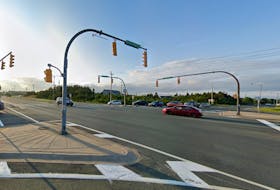A tax increase could be on the way for residents of St. John’s, but Coun. Dave Lane says it’s necessary if residents don’t want to see cuts to programs and services.
A mailout from the city will land in mailboxes over the next week or so, giving residents an idea of what could come in the 2019 city budget, expected to be delivered in mid-December.
The mailout says the city is looking at an increase to the mill rate of between 0.4 and 0.6 percentage points – the first residential mill rate increase in the city since 2011.
The city’s water tax will also likely increase by $30, to $610.
Based on a home valued at $300,000, it could mean an increase of up to $220 on the current municipal tax bill.
“What we’re looking at this year, is in order to cover the expenses that we see, in spite of serious efforts to rein in spending … and maintain the service levels residents are demanding, we will see a marginal increase of the mill rate,” said Lane, council’s finance chair.
“What we’re looking at is the realities of our fiscal situation.”
Just as residents feel their own power rates increase, the city is feeling the same pinch. The current electricity bill to the city is $10.3 million, which will likely increase to $16.3 million by 2021.
A $3.4-million increase to the city’s debt payments, another $1 million in city salary costs, another $606,000 to Metrobus salaries and an $808,000 increase in fire protection costs are also pushing the expense side of the ledger higher.
On top of that, home values are expected to decrease. The previous home values were calculated in 2014, with the next round due to be completed based on the 2017 model. The overall decrease in home values could mean an $8-million to $15-million decrease in residential tax revenue to the city, putting further pressure on the city to increase taxes.
But the mailout points to ways the city is trying to reduce expenses.
A freeze on salary increases for management employees has been in effect since July 1, 2017.
New staff hires are being kept to a minimum, according to the city. Eliminating car allowances and overtime is expected to save $500,000 per year, and cellphone costs have decreased by 43 per cent.
Lane says that before the budget is announced in about three months, the city is looking for input from residents.
Public engagement sessions will take place across the city on Oct. 10, 11, 17, 18, and 30, with Facebook Live broadcasts scheduled for Oct. 2 and 25.
Residents can also get in touch with the city to share their ideas at engagestjohns.ca.
Twitter: DavidMaherNL









